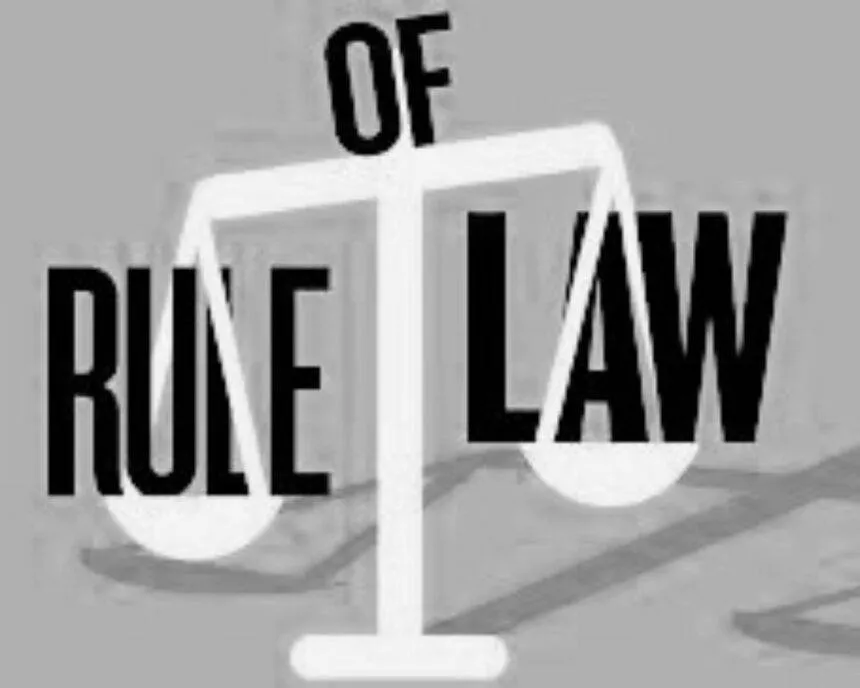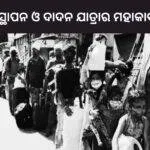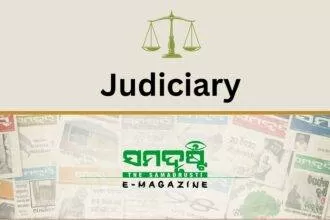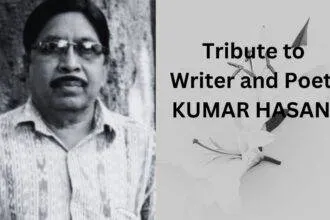3.5.2023/
When I entered IAS in 1986, there was very limited effort for publicity of Government schemes and program. Even in areas like combating poverty or malnutrition, there was hardly any publicity being made. We in the civil services attempted more visible transparency measures like sign boards at the work sites, whether it was a house under a rural housing program or a school building, indicating the scheme under which it was constructed, when it was done, and how much money spent, how much wage employment provided etc. Over the years, we found this gap between perception and reality has been more than fully bridged.
Not only the budget available for Information and Public Relations increased, but new opportunities to showcase the work of the Government emerged. Now we are living in the age of 24×7 TV news channels and the massive presence of the Government in social media. We are also witnessing how technology is being used to create false images, how fake news is being spread, how bots are being used to amplify any particular version of an event.
Having worked for over 36 years in Government, I must say that lot of changes have occurred. Abject poverty has been removed in many areas, though more work is needed Drinking water is available in most villages, though more work needs to be done on quality of water. Getting record of land rights is much more easy now. The economic and social conditions, nutrition levels, health facilities even in KBK region have significantly improved. Substantive work has been done In terms of increasing our capacity to face natural disasters, both in creating and maintaining physical infrastructure, but also in constantly enhancing human resources by use of technology and by people’s participation. All these are works in progress and must be continued in full vigour.
The finances of Odisha Government have also improved significantly when compard to the position a few decades ago, when it was not certain whether Government servants would get the next month’s salary in time. Such improvement happened through careful management of the finances and efficient handling of litigation like the dispute with Indian Oil Corporation. I look at my role in civil service with satisfaction, as I got opportunity to work in a variety of assignments.
However, over a period of time, I have also found a tendency towards over-centralisation of the polity, both in Odisha and in some other States as well as in Government of India. While an over-centralised mechanism is a nice and cozy arrangement for civil servants, it has an implication that the normal routine work, which is not coming on to the radar of the CMO or the PMO, does not get its due attention. It also has the disadvantage that the opportunity for civil service getting feedback from powerful and vocal elected representatives gets lost. Thirdly, it makes the civil service complacent, as you do not have to do anything till you are asked to execute a specific project or organise a specific event. Fourthly, it enhances the real gap between the State and the people. Fifthly, it has a tendency to make the State appear less and less accountable.
I would like to clarify that in a democracy, civil service is not expected to be primary. As per the Constitution of India, it is the elected Government that takes the decisions, which the civil service has to implement, as long as they are legally correct. In Odisha civil service we have a very healthy convention that in internal meetings, the civil servants can speak their minds freely and record their views or suggestions freely in the files. Civil servants are expected to render their professional advice by analysing the legal position and examing possible policy alternatives. It must be noted that every civil servant has taken an oath swearing allegiance to India and to the Constitution of India as by law established and to discharge one’s duties loyally, honestly and with impartiality.
In case the Government does not agree with the suggestion given by the civil servant, they have the prerogative to overrule the civil servant. Once a decision is taken, the civil service is expected to execute the decision sincerely and efficiently. It is not in the scheme of things that the poltical Government should necessarily accept the suggestions made by rigid bureaucracy that is resistant to change, as it is the political executive that is in the driving seat of bringing in change. However, it is also not expected that the civil servants would do the party work, contrary to the oath that they have taken. Various statutory Bodies and institutions like Election Commission of India, ED, CBI, the erstwhile Planning Commission, University Grants Commission, national academies, Indian Council for Historical Research, and several such institutions were allowed to nurture their own traditions of intellectual, professional and executive autonomy in the past. It appears that this autonomy is being eroded as the State is becoming over-centralised.
It may be noted that as per the concept of Rule of law, however high one may be, one must realise that Law is above him. Therefore, an over centralised State also has to follow the rule of law. In case that is violated, citizens have remedies available as per the Constitution of India. One remedy is to go to the media and highlight their issue. But it is increasingly seen that the mainstream media is no longer playing the role of questioning the over-centralised State. Another alternative is to persuade their elected representative to raise the issue in the concerned Legislative Body, whether State Assembly or Parliament.
Another alternative available is to approach the judiciary for redressal of the grievance. It is seen that several cases, having a bearing on the lives of large number of citizens, are pending with the Judiciary at various levels. For example, the PIL on the validity of Citizenship Act amendment, abrogation of Article 370 and creation of two Union Territories of J & K and Ladakh, validity of PMCares Fund are pending. In addition, it may be noted that Supreme Court has a pendency of over 63,000 cases, whereas the annual disposal has been falling short of fresh institution of cases by over 2,000. The sheer volume of pendency, apart from the cost of litigation, is a major factor that threatens to erode the role of judiciary as the Institution that can be approached by the citizen having a grievance with the over-centralised executive. In this context, it needs to be noted that the State is the biggest litigant.
It would not correct to dismiss, “Anyway Rule of Law would be followed, as I will do any illegal act and if you are affected, you can go to Court. If I lose, I will keep on appealing till the matter is adjudicated by Supreme Court. Till all the channels provided in law are exhausted, I will have my way.” The Government is provided with so many civil servants of different cadres, who are well versed with law and who can point out the legally correct option. Therefore, what I mean by Rule of law is a genuine effort to follow the law in letter and spirit to serve the objectives enshrined in the Constitution.
The enforcement Directorate is meant to enforce the provisions of the Prevention of Money Laundering Act and Foreign Exchange Management Act. The amendment brought out in PMLA in 2019 through Finance Act has been upheld by the Supreme Court in 2022. It may be seen that as on 31st January 2023, 5,906 Enforcement Case Information Reports were recorded, a search was conducted in 531 cases, 1,919 Provisional Attachment Orders amounting to Rs 1.15 lakh crore were issued, 1,142 prosecution complaints were filed, and in 24 cases conviction obtained. Thus, the pendency before the adjudicating authority is over 1,100. A joint prayer made by 18 political parties alleging misuse by ED and CBI has been disposed off by Supreme Court with the observation that they cannot pass a blanket order. It has been reported in the press that the ED cases against politicians have seen a four-fold increase and that 95% of them are from the opposition parties. Narcotics Control Bureau had registered cases against some Bollywood actresses. Most of these cases have been rejected by the Courts, putting a question mark on the credibility of NCB.
Foreign Contribution (Regulation) Act was retrospectively amended indirectly in 2016 and in 2018, without debate by Parliament in the form of Finance Acts. In the absence of these amendments, it would have been a violation of FCRA on the part of major political parties, including BJP and Congress, when they had received financial contributions from Vedanta Group. However, by retrospective amendments, the matter has been regularised, leaving a question mark on the professionalism of the enforcing authorities. The proceedings of the demonetization case in the Supreme Court have shown that the Reserve Bank of India did not initiate the proposal for demonetization. Though the Constitution Bench of the Supreme Court of India, in a majority judgment delivered in January 2023, found no flaw in the demonetization process announced in November 2016, the minority opinion recorded has not covered the Reserve Bank of India with glory as an autonomous institution.
The credibility of the Election Commission of India suffered a setback when it was reported in the media in 2021 that the three Election Commissioners were asked to attend a meeting in PMO, and they did participate in it through video conferencing. Similarly, the counting for Assembly elections in Gujarat and Himachal Pradesh was on the same day in 2022. However, the date of poll for Gujarat was announced with a two-week gap. Though it was well within the statutory period as per law, the Model Code of Conduct did not commence on the same day in both the States, with candidates in Gujarat getting an additional time of about three weeks for campaigning. This was explained by the Election Commission, stating that the precedent established in 2017 was followed.
However, it may be noted that it is a fact that in 2017, Himachal Pradesh’s schedule of elections was announced on 12.10.2017, whereas Gujarat election schedule was announced on 25.10.2017. However, if we go back further, it may be seen that for the 2012 assembly elections, the election schedule for both these States was announced on the same date i.e. 4.10.2012. This shows that it was not such a strong precedent that cannot be broken, as clearly the precedent of 2012 was broken in 2017. While there have been several useful publications and consultative meetings organized by NITI Ayog, the focus on social development and marginalised groups appears to be shifting. Of course, many of us here may be able to recall the oft-quoted statement of the then CEO of NITI Ayog about India having ‘too much of democracy’. Despite its limitations, the erstwhile Planning Commission was an important institution in ensuring the fair allocation of resources among the States.
These days concern is being expressed regarding the erosion of the Federal character of the polity. Some of the examples in this regard include complaints regarding the Centre depriving States of their legitimate share in tax revenues by raising additional fiscal resources through cess/ surcharge, the Centre diverting revenue resources from the common pool to fund central plan schemes or centrally sponsored schemes that encroach on the domain of the States; enacting three farm laws without adequate consultation with the States; repealing the three laws without adequate consultation; giving inadequate attention to provide funds and enable the States to utilise resources under National Disaster Risk Management Fund awarded by the 15th Finance Commission, even after Covid 19 subsided; Central Cabinet clearing the proposal for monetising the surplus land allocated to the Central Public Sector Undertakings, whereas land is a State subject and land was originally allocated with the condition that if it is not used for the purpose meant, it would revert back to the State Government.
The Training Academy of civil servants at Mussoorie has been an important institution in imparting knowledge, skills and value framework for the civil servants. The Director of the Academy has written an article recently in the Indian Express, in which he exhorted the role of civil servants as compliant managers, rather than as officers who discharge their duties impartially with allegiance to the Constitution. He also made an interesting observation that the task of defining an Indian ethos for the civil service began in the 75th year of India’s independence,with PM spelling out a vision in his address. This is a totally unfounded statement as the Director himself has worked for over three decades in IAS and it cannot be argued that he and all previous civil servants worked without an Indian ethos.
Now, we need to contemplate on what this erosion of the autonomy of the institutions implies to the common citizen. It can either mean that everything is happening nicely and people’s incomes and livelihood opportunities are increasing by the convergence of all the institutions in the national cause. Or it can indicate the possibility of shrinking of democratic space available to the citizens and especially to the marginalised communities who depend on common property resources for their survival.
It may be noted that there has been a long-standing demand of civil society organisations in the North East to withdraw the operation of the Armed Forces Special Powers Act, under which a Junior Commissioned Officer can shoot to kill a citizen. In 2015, the Act was withdrawn from Tripura, and in 2018, it was withdrawn from Meghalaya. It is now applicable fully in 31 districts and partially in 12 districts of 4 States. It has been withdrawn from 14 police station areas in Manipur after the withdrawal of a 16-year long fast by activist Irom Sharmila. To this extent, there has been some increase in democratic space in recent years.
I would like to discuss a few recent instances that have put a question mark on the operation of Rule of Law in some major States:
(a) Speeches promoting hatred among communities are going on unpunished. For example, a self-styled Dharma Sansad at Haridwar in December 2021 instigated the participants to wage a war against Muslims. It needs to be noted that the Constitution has given all persons the right to profess, practice and propagate religion of their choice. Supreme Court directed all States to register FIR whenever hate crime takes place.
(b) Convicted criminals are being released from prisons in an arbitrary manner. Gurmeet Ram Rahim, serving a 20-year sentence for raping two of his disciples in Haryana is being released from time to time on parole. Eleven persons who were convicted in the case of gangrape of Bilkis Bano have not only been released in Gujarat on remission of their sentences, but their release was openly celebrated by their supporters. Anand Mohan Singh, who was convicted for murder of Krishnaiah, IAS, the then District Magistrate of Gopalganj district in Bihar has been released recently after amending the rules.
(c) Several persons are being arrested in different States under the Unlawful Activities (Prevention) Act. Though originally it was meant to deal with terrorist orgnanisations, the law was amended in 2019 to include individuals. The deviations in UAPA from normal criminal law need to be noted: (i) There is a specific bar in UAPA to give bail based on prima faci truth in the accusation. (ii) Remand period in UAPA is 30 days, unlike 15 days in normal offences. (iii) Period for filing chargesheet is normally 180 days in UAPA, unlike 90 days in normal offenses. (iv) No bail in UAPA cases, unless the Public Prosecutor is given an opportunity of being heard (v) No hearing in the trial court can take place in UAPA cases within 180 days of arrest (vi) Several people were prosecuted earlier under TADA and POTA, not for having indulged in a terrorist act or causing death or injury, but on allegations of ‘conspiring to commit a terrorist act’, though no such act was proved.
These provisions of repealed laws of TADA and POTA still remain in UAPA in Section 18. Between 2015 and 2020, 8,371 persons have been arrested in 5,924 cases registered under UAPA. It is also to be noted that the conviction rate between 2015-20, as a proportion of a number of persons arrested, was 22.2 % for normal IPC offenses, whereas it was 2.8% for UAPA. Some of the glaring examples of misuse of UAPA include the case of Siddique Kappan, a journalist from Kerala who went to Hathras in Uttar Pradesh to cover the gangrape case, who was under arrest from October 2020 to February 2023. Sudha Bharadwaj was arrested at a seminar in Delhi on misuse of UAPA. She was under arrest under UAPA from August 2018 to December 2021 in Bhima Koregaon case.
Fr Stan Swamy, who worked among tribals for over three decades, was under arrest under UAPA from October 2020 till his death in July 2021. Because of Parkinson’s disease, he was unable to hold a glass. His request for a straw sipper to enable him to drink water due was not honoured. His statement that his phone was hacked and ‘evidence’ incriminating him had been planted was neither accepted nor rejected by the Court formally. More research by academicians and legal researchers is needed to see whether any correlation exists between UAPA detentions and peaceful, constitutional conflicts relating to common property resources.
(d) A double-layer protection is available to Andaman and Nicobar Islands. One is by way of Reserve forest, where dereservation is not possible easily. The other is through a Regulation of 1956 by which aboriginal tribes are supposed to be protected. Serious concerns have been expressed by some activists on the proposed project of International Container Transhipment Terminal along with Greenfield International Airport, as it is felt that the Shompens and Nicobarese would be adversely affected. It is not clear whether actual public consultation has been done and whether any benefit-sharing mechanism has been explored. National Green Tribunal has reportedly formed a committee consisting entirely of Government officials to revisit the environmental clearance granted for this investment proposal costing Rs 72,000 crore.
It is necessary, now more than ever, that citizens, intellectuals, and activists bury all their other differences and act together to demand accountability on the part of the institutions that are meant to uphold the Constitutional provisions.
( This was delivered by the author Shri G V Venugopal Sharma on May 3, 2023, as part of the Ashok Baboo Memorial Lecture)
Comments
0 comments







